
Key Technical Resources
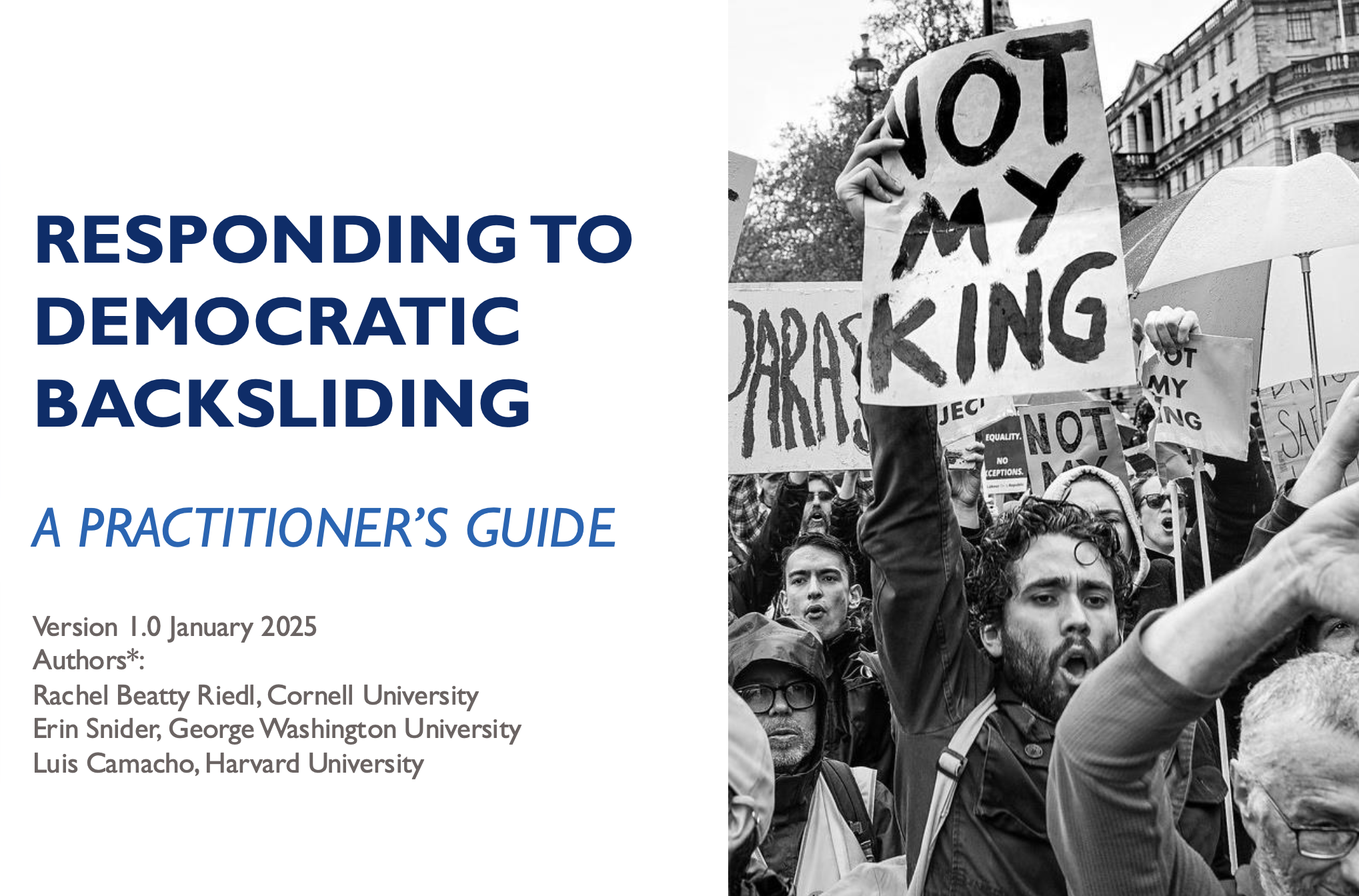
Responding to Democratic Backsliding: A Practitioners Guide
This guide aims to facilitate democracy support staff decision
making by providing recommendations for responding to instances of democratic backsliding. It compiles current research on how such backsliding occurs and what factors have been observed to prevent further democratic decline. The goal of this guide is to help practitioners identify where they should focus their attention and how limited resources might best be applied given the pattern of democratic backsliding that a country is experiencing.
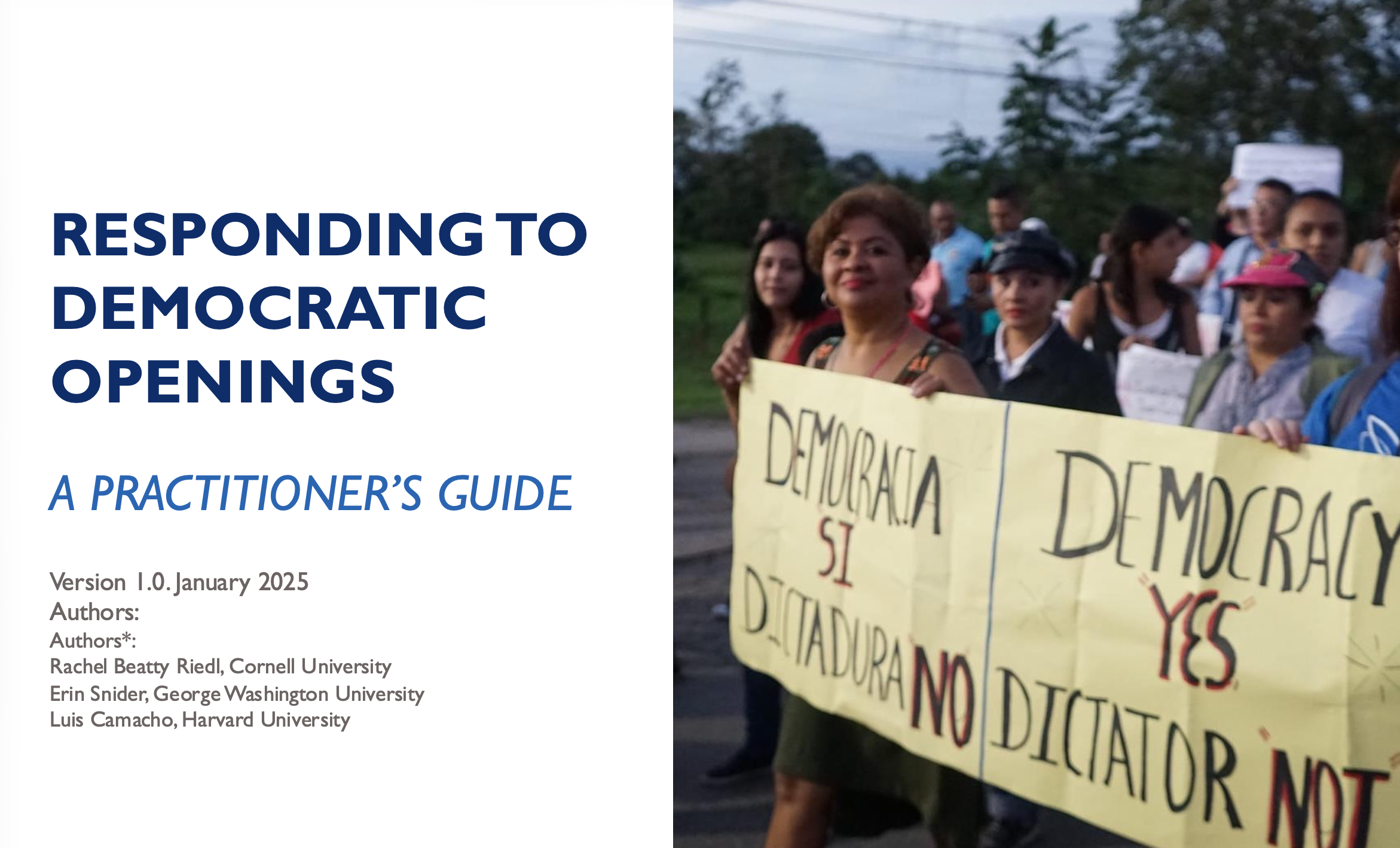
Responding to Democratic Openings: A Practitioners Guide
This guide aims to facilitate democracy support staff decision making by providing recommendations for responding to democratic openings. The goal of this guide is to help practitioners identify where they should focus their attention and how limited resources might best be applied given the pattern of democratic opening that a country is experiencing.

Guide to Trauma-Informed Approaches for Youth Empowerment
A practical guide (Sept 2024) for development practitioners with guidance and tools to support the mental well-being and resilience of youth through trauma-informed approaches (TIA) and mental health and psychosocial support (MHPSS). It translates SAMHSA’s six TIA principles and USAID’s Positive Youth Development (PYD) framework into concrete actions across assessment, design, implementation, and MEL—prioritizing safety, inclusion, and youth agency.

Tech-Facilitated Parliamentary Monitoring: 8 Use Cases
This guide, published by the National Democratic Institute and Directorio Legislativo, highlights the tech tools that parliamentary monitoring organizations are using to track and report on the legislative process and performance. Rooted in the real-life experiences of 12 PMOs from Asia, Latin America and Europe, this guide presents eight use cases, leveraging 20 tech tools, that may be adapted and tailored across contexts over time.

Understanding Social Norms: A reference guide
The Understanding Social Norms: A reference guide for policy and practice is a comprehensive exploration of what social norms are, why they should matter to anyone working to diminish corruption in fragile, and conflict-affected states, and an explanation of how social norms influence corruption in these contexts.

AI in Global Development Playbook
The AI in Global Development Playbook provides a roadmap for using trustworthy AI to drive sustainable development through good governance, collaboration, and practical guidance.
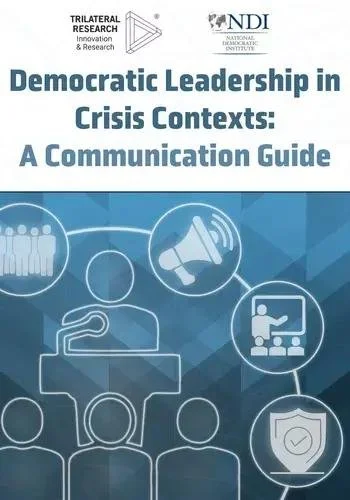
Democratic Leadership in Crisis Contexts: A Communication Guide
A practical guide for democratic leaders to apply transparent, inclusive, and accountable communication before, during, and after crises to build trust and safeguard democratic norms.
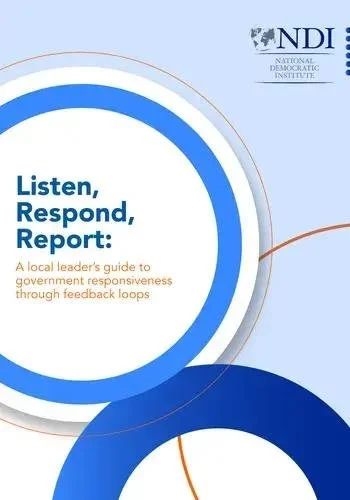
Feedback Loops Guide
The Feedback Loops Guide is a practical toolkit from NDI that helps local leaders design and implement two-way communication processes with citizens to improve trust, responsiveness, and decision-making in democratic governance.
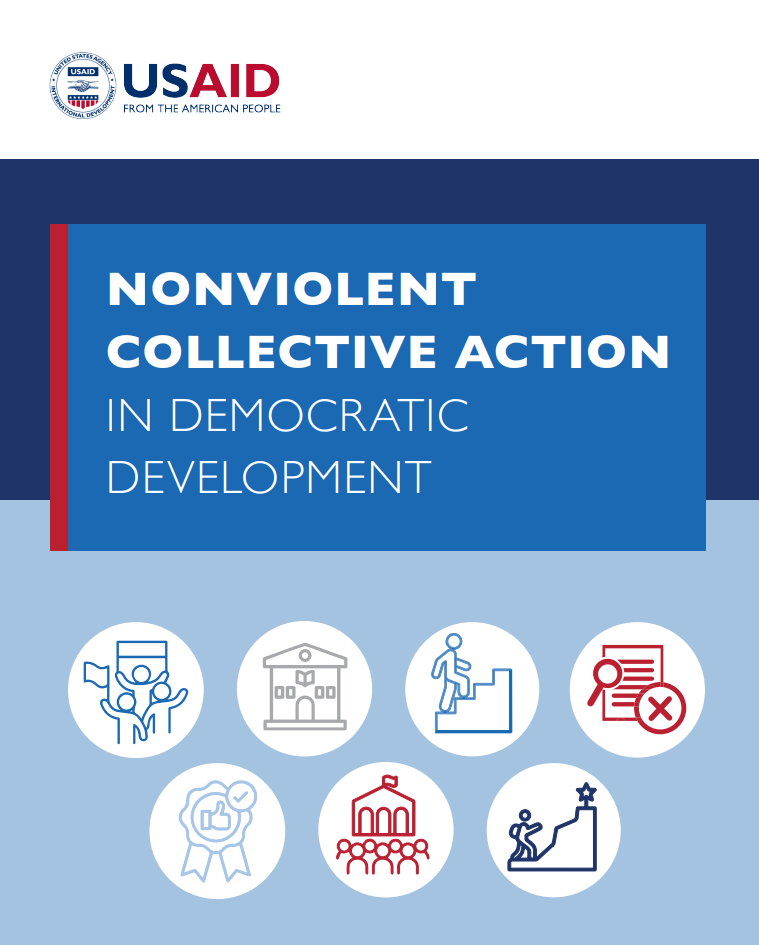
Nonviolent Collective Action in Democratic Development
This USAID primer outlines the role of nonviolent collective action—such as protests, civic organizing, and civil resistance—in advancing democratic development. It defines key terms, examines threats to civic space, and offers five strategic recommendations for donors, including flexible funding and grassroots support. The document emphasizes that nonviolent movements are significantly more effective than violent ones and should be recognized as a core component of democratic strategy.
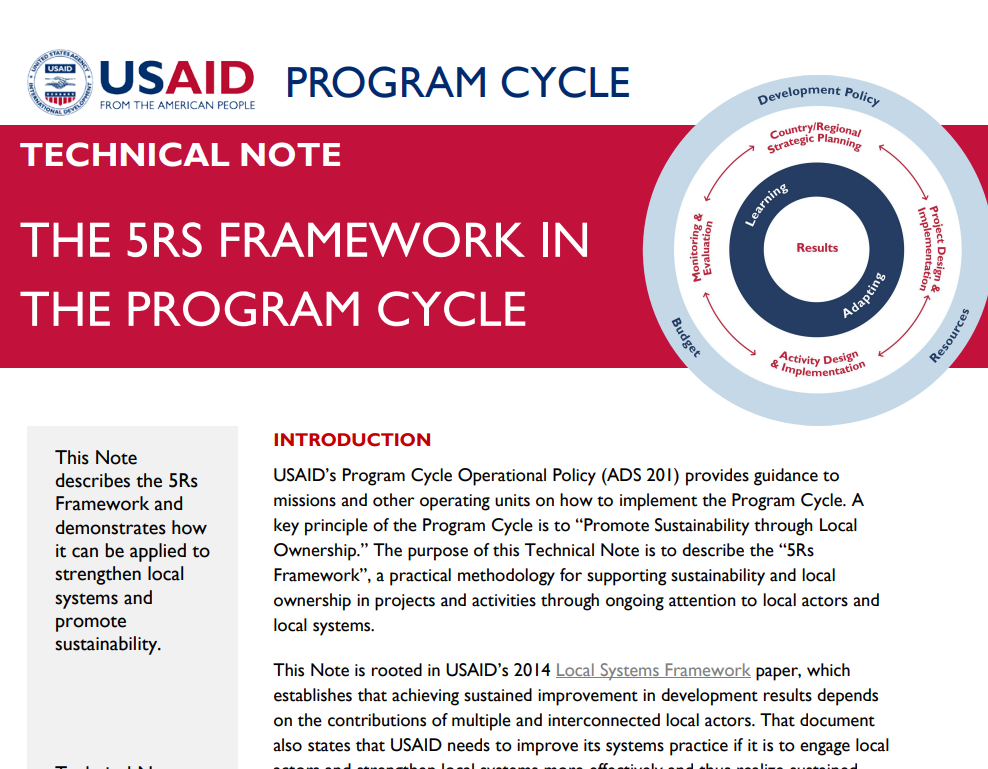
The 5Rs Framework in the Program Cycle
This USAID Technical Note describes the 5Rs Framework and demonstrates how it can be applied to strengthen local systems and promote sustainability.
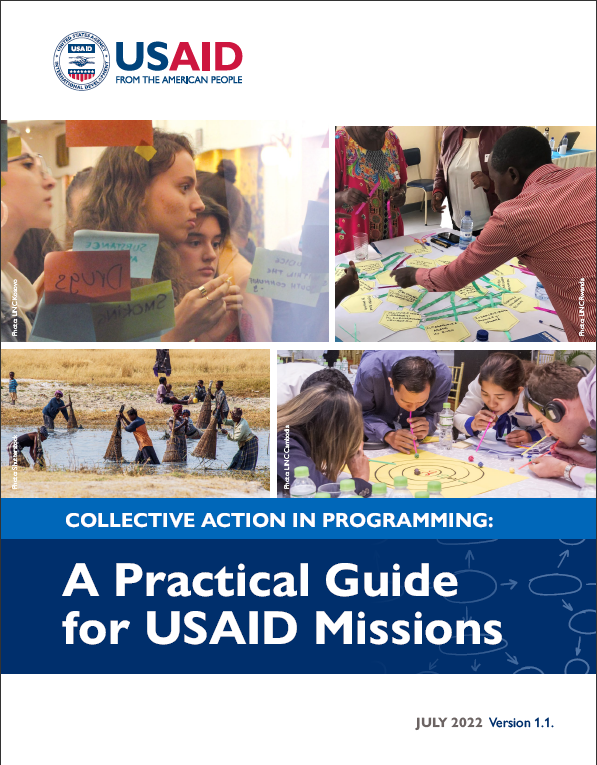
Collective Action Practical Guide (2022)
This practical guide helps to integrate Collective Action into programming by offering tools, examples, and step-by-step modules for designing and supporting inclusive, locally-led coalitions.

US Democracy Organizational Mapping
This is part of an ongoing research project to map out US based democracy organizational infrastructure.

Democracy Narratives in Action Resources
Advancing support for liberal democracy and more effectively countering authoritarian narratives and attacks on democratic principles and institutions requires evidence-based pro-democracy narratives. You can find the open access Democracy Narrative Research and Resources including:
• global and U.S. research reports
• narrative and message frameworks
• summaries with resources and non-technical language glossary
• updated narrative model and worksheets
• information on the Pro-Democracy Narrative Playbook

Atrocity Prevention: A Development Practitioner's Guide
This USAID guide provides practical tools and information for development practitioners to prevent and respond to mass atrocities. It helps staff identify early warning signs, develop appropriate responses, and coordinate with government colleagues as part of comprehensive U.S. atrocity prevention efforts. The guide distinguishes atrocity prevention from general conflict prevention, focusing on perpetrators and how development tools can help dissuade potential actors from committing mass atrocities, while offering flexible reading approaches based on practitioners' roles and available time.

Policy for Countering Violent Extremism Through Development Assistance
This USAID policy provides updated guidance for countering violent extremism through development programs, emphasizing systemic strengthening of local institutions and communities rather than addressing isolated drivers. The policy focuses on building partnerships with local actors, engaging where U.S. assistance can be most effective, and adapting to evolving extremist threats. It aims to reduce recruitment into violent extremism and build partner capacity for self-reliant prevention and response, while integrating CVE efforts with broader U.S. development and security objectives.

USAID Humanitarian Assistance Anti-Corruption Integration Handbook
The USAID Humanitarian Assistance Anti-Corruption Integration Handbook is a comprehensive guide developed by the U.S. Agency for International Development (USAID) to support the integration of anti-corruption strategies into humanitarian aid programming. It is aimed at USAID staff, implementing partners, and humanitarian practitioners, providing technical guidance, risk management tools, and accountability mechanisms to safeguard aid delivery in high-risk environments.

USAID Guide to Countering Corruption Across Sectors
This USAID Guide to Countering Corruption Across Sectors is the first comprehensive technical guidance document designed to transform USAID's anti-corruption approaches and programming. Developed by USAID's Anti-Corruption Task Force (ACTF) with contributions from staff across the Agency's offices, bureaus, and missions, the guide serves as part of a broader suite of anti-corruption resources. It provides sectoral guidance and practical tools to help USAID personnel integrate anti-corruption strategies into their development work across various sectors and programming areas.

Analyzing Transnational and Strategic Corruption and Kleptocracy (TASCK) in Sub-Saharan Africa: Phase 1 Findings & Co-Creation Workshop Summary Report
This research study examines transnational corruption, strategic corruption, and kleptocracy (TASCK) in sub-Saharan Africa to help USAID improve its anti-corruption programming. Following recent U.S. policy directives, the study addresses how these sophisticated, cross-border forms of corruption impact African communities and whether current development responses adequately address them. The research aims to provide Africa-specific insights to help USAID adapt its programming to more effectively counter corruption that undermines government legitimacy and diverts public resources.

Analyzing Transnational and Strategic Corruption and Kleptocracy (TASCK) in Sub-Saharan Africa: Phase II Findings Report
This study examines how transnational and strategic corruption and kleptocracy (TASCK) affect governance and development in sub-Saharan Africa. Phase I identified key sectors and regions impacted, while Phase II focused on elections and natural resources in Madagascar and Nigeria. Findings aim to help USAID and other agencies better address TASCK through targeted programming.

Missing Resource Form
See something missing? Want to add a missing resource? Fill out the form below. Thank you in advance.
